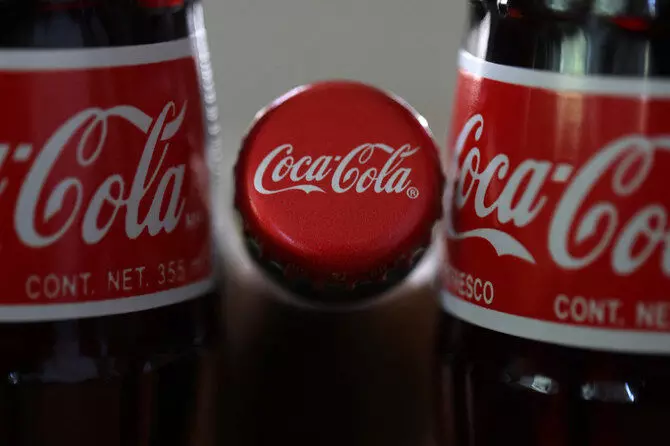
Coca-Cola, Pepsi: latest casualties of war in Sudan
text_fieldsKhartoum: As the conflict that has erupted in Sudan intensifies, manufacturers of consumer goods from around the world are scrambling to replenish their supplies of gum arabic, one of the most in-demand goods in the nation and an essential component of everything from fizzy drinks to candy and cosmetics.
The acacia trees in the Sahel area, which spans through Africa's third-largest nation and is currently ripped apart by the war between the army and a paramilitary force, provide around 70% of the world's supply of gum Arabic, for which there are few alternatives.
Companies that depend on the commodity, like Coca-Cola (KO.N) and Pepsico (PEP.O), are wary of Sudan's ongoing insecurity and have long stockpiled supplies, some storing enough for three to six months' worth of needs, according to exporters and industry sources who spoke to Reuters.
Prior battles have frequently been concentrated in remote areas like Darfur. Fighting that started on April 15 has this time paralysed the economy and interfered with basic communication, bringing the capital Khartoum to a stop, Reuters reported.
“Depending on how long the conflict continues there may well be ramifications for finished goods on the shelf - branded goods made by household names,” said Richard Finnegan, a procurement manager at Kerry Group (KYGa.I), a supplier of gum Arabic to most major food and beverage firms
According to Finnegan, current inventories will run out in five to six months. Martijn Bergkamp, a partner with Dutch producer FOGA Gum, estimated that it will take between three and six months.
According to a spokeswoman, Cloetta AB, a Swedish confectioner that produces gum arabic-containing Lakerol lozenges, has an "ample" supply on hand.
According to figures published by Kerry Group, 120,000 tonnes of gum Arabic are produced worldwide each year, with a market value of $1.1 billion. The majority is located in the "gum belt," which spans 500 miles from East to West in Africa and includes Ethiopia, Chad, Somalia, and Eritrea where arable land meets the desert.
Twelve exporters, suppliers, and distributors said that the trade in gum, which helps bind together food and drink ingredients, has completely stopped.
According to Mohamad Alnoor, the owner of Gum Arabic USA, which distributes the product to customers as a health supplement, it is currently "impossible" to acquire extra gum Arabic from rural areas of Sudan due to the unrest and roadblocks.
‘Can't exist without gum Arabic’
Communication with contacts on the ground has been challenging, according to Kerry Group and other suppliers, including Sweden's Gum Sudan, and Port Sudan, from which cargo is exported, has prioritised civilian evacuations.
“Our suppliers are struggling to secure necessities because of the conflict,” Jinesh Doshi, managing director of Vijay Bros, an importer based in Mumbai, said. “Both buyers and sellers are clueless on when things will normalise.”
Owner of the gum Arabic exporting company AGP Innovations Co Ltd, Alwaleed Ali, claimed that his clients are looking for different nations to buy gum Arabic from.
He said he sells the gum to two significant ingredient suppliers to producers of goods including pet food, fizzy beverages, and nutrition bars, Nexira SAS, based in Rouen, France, and Ingredion Inc (INGR.N), based in Westchester, Illinois.
A spokesperson for Ingredion said in an email, “We have proactive measures in place across our business to ensure the continuity of supply for our customers.”
Coca-Cola did not respond to a request for comment, and PepsiCo declined to address supply chain and commodity issues.
“For companies like Pepsi and Coke, they can't exist without having gum Arabic in their formulations,” Dani Haddad, marketing and development director of Agrigum, a global top-ten supplier, said
According to industry sources, food and beverage manufacturers utilise spray-dried gum that resembles powder in their manufacturing process. There may be alternatives for manufacturers of cosmetics and printing materials, but gum Arabic, which keeps chemicals in fizzy drinks from separating, cannot be replaced.
Gum Arabic has been spared from US sanctions against Sudan since the 1990s, a sign of its significance to the consumer products sector and due to concerns that it would lead to the emergence of a black market.
The pebbly, amber-coloured gum from acacia trees is harvested by Sudanese nomads, which is then refined and packaged for distribution throughout Sudan. According to Gum Sudan, it provides thousands of people with a living, and the more premium form can cost around $3,000 per tonne.
The desirable component is only found in acacia trees in Sudan, South Sudan, and Chad, according to Alnoor, however, there is inferior-quality, less expensive gum from outside of Sudan.
Despite having purchase orders and intentions to ship 60 to 70 tonnes of gum Arabic, Fawaz Abbaro, the general manager of Savannah Life Company in Khartoum, expressed doubt that he will be able to do so because of the fighting.
“It's not stable even to get food or drink. It's not going to be stable for business,” Abbaro said. “All trading will be jammed for the time being.”























